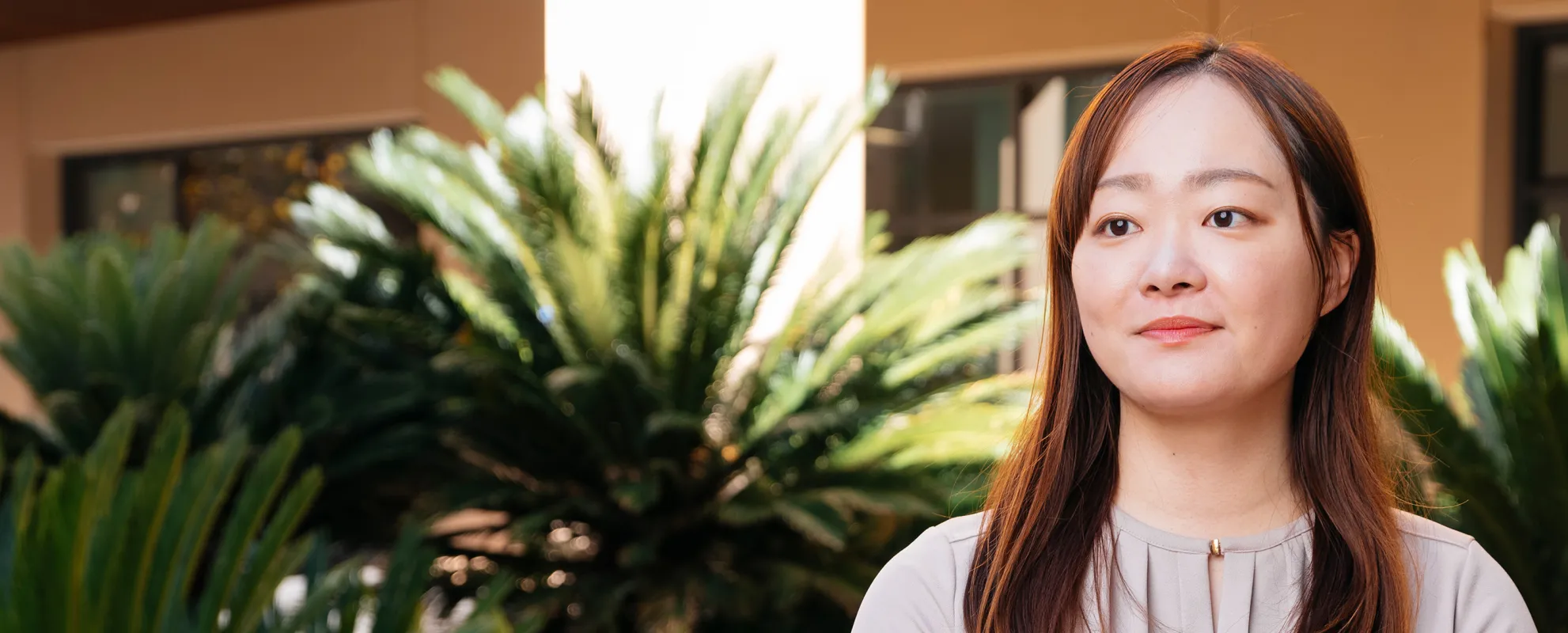Yukiho Ishigami grew up in Tokyo hard-wired to buck the Japanese social norms that often keep women from high-powered careers.
But after studying law and excelling in her various roles at Japan’s central bank, then enrolling at Stanford GSB, she sees more clearly how her career trajectory was spurred by the experiences of her mother, who had difficulty developing her career after her marriage.
“Because she had her own struggles, she did her best to prevent all those struggles for me when I was young,” says Ishigami, who envisions a future in education that will help everyone reach their full potential. “She really protected me from prejudices or social norms that would hurt me. I’m really moving forward, and that’s thanks to her strength.”
What does entrepreneurship mean in Japan?
In Japan, entrepreneurship means generating unicorns rather than bringing social impact. But I think Japan needs more social entrepreneurship and impact investing to overcome all the challenges caused by its demographic problem.
You’ve spoken about growing up in a culture where humility is considered a virtue. Did that pose any challenges for you at GSB?
In Japan, you’re expected not to acknowledge your achievements and abilities. If someone praises you, you should say, “No, it’s nothing” or give credit to another person. I’d been denying my achievements and abilities. But the GSB is very different, and American culture is very different. For example, I had to be direct and assertive in the Leadership Laboratory, and received constructive feedback in the [Interpersonal Dynamics] course that I should own my achievements and abilities and that was enlightening. I learned to acknowledge my achievements.
Have your classmates supported you?
They’ve been very supportive and considerate about my background and the challenges I’ve been going through to accommodate the cultural difference. Now my challenge is to balance and shift between two very different and extremely opposite cultures.
You taught gender equality as a guest teacher in a high school in Tokyo and emphasized that it is important to you. Based on your experiences here, how does the gender equality issue in Japan differ from the U.S.?
It’s very different. My undergrad university, the University of Tokyo, had only 20% female students, and it was when I started to become a minority as a female. At GSB, it’s more like 45%. I realized how deeply and unconsciously I’ve been affected by gender dynamics in Japan only after I came to the GSB and became free from gender inequality. It has been really healing and inspiring for me, and I appreciate my teammates in the [Interpersonal Dynamics] course for helping me uncover my vulnerabilities.
You speak six languages. Can you cite an example of how that has been an advantage in your life so far?
Being able to speak English is an advantage in Japan. I’m really close to my GSB classmates from Latin America, and we enjoy our conversations in Spanish.
Where does that facility with languages come from?
When I was a teenager, I wanted to be a diplomat and work for world peace, and I believed in the power of language and ability of people to talk instead of fight. As a non-native speaker, I acknowledge that English is hard for many people in the world to master, and if I speak different languages, I can better understand and empathize with people from different backgrounds.
Have you met any particularly influential mentors along the way?
My mom. She’s the person who understands and encourages me the best. She went through a similar journey as mine but in a different way. In some ways, it was harder for her.
She studied pharmaceutical science at the University of Tokyo, but in her time only 10% of students were female. She left her job in a large corporation when she got married. Although she was one of the first female employees who were hired as “future executives,” that was a social norm then. I’m an only child, and she started working again when I was in elementary school, but she couldn’t really go back to her original career track after the career break, so she worked as a food safety expert without opportunities for promotions. It’s been a long journey for her to unlearn the social norms around gender roles in Japan and recognize how she’s been impacted by them. We are able to understand and support each other.
Any professors, classes, or experiences at the GSB that have made a big impact on the way you do business?
Design for Extreme Affordability made an impact. It’s offered at the design school, co-hosted by the GSB. You learn social entrepreneurship by design thinking. It really built a different way of thinking in my head and heart. I trained myself to see things from a macro point of view. But with design thinking, we start from empathy. We acknowledge the biases we have and all the aspects that have shaped our perspectives and try hard to understand the needs of users. It was very powerful and resonated with me and my own experience, and made me realize how I want to make changes in the world.
Photos by Elena Zhukova


